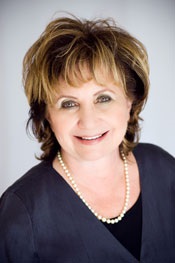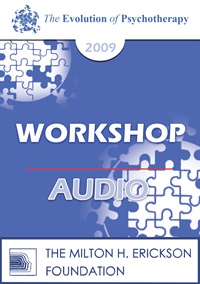EP09 Workshop 11 – How to Change Relationships – Cloe Madanes, Lic. Psic, HDL
- Average Rating:
- Not yet rated
- Topic Areas:
- Workshops | Psychotherapy | Family Systems | Healing
- Categories:
- Evolution of Psychotherapy | Evolution of Psychotherapy 2009 | Pioneers in Couples and Family Therapy
- Faculty:
- Cloe Madanes, HDL, LIC
- Duration:
- 2 Hours 21 Minutes
- Format:
- Audio Only
- Original Program Date:
- Dec 09, 2009
- License:
- Never Expires.
Description
Description: Cloe Madanes presents 25 practical strategies for improving relationships, grounded in social context and interactional therapy. Key tools include boundary-setting, rituals, coaching, and empathy-driven techniques. She introduces the six human needs: certainty, variety, significance, love/connection, growth, and contribution. She uses case examples to show how couples can navigate these needs through mutual understanding, negotiation, and repair. Highlights include interventions for infidelity, addiction, and conflict resolution, along with tools from her book Relationship Breakthrough.
Syllabus Description: Cloé Madanes will present a theoretical framework and tools that therapists can use to understand what relationships need to change in order to solve the problem presented to therapy. Madanes will present 20 of her favorite strategies illustrated with case examples and with experiential exercises.
Educational Objectives:
- To list five tools for understanding relationships.
- To describe 20 strategies of psychotherapy.
*Sessions may be edited for content and to preserve confidentiality*
Credits
Handouts
| Timestamped Transcript (1.4 MB) | 38 Pages | Available after Purchase |
| Ericksonian Learning Snapshot (273.6 KB) | 3 Pages | Available after Purchase |
Faculty

Cloe Madanes, HDL, LIC Related Seminars and Products
Cloé Madanes, HDL, LIC, is a world-renowned innovator and teacher of family and strategic therapy and one of the originators of the strategic approach to family therapy. She has authored seven books that are classics in the field: Strategic Family Therapy; Behind the One-Way Mirror; Sex, Love and Violence; The Violence of Men; The Secret Meaning of Money; The Therapist as Humanist, Social Activist and Systemic Thinker; and Relationship Breakthrough. She has presented her work at professional conferences all over the world and has given keynote addresses for The Evolution of Psychotherapy Conference, the American Association of Marriage and Family Therapy; the National Association of Social Workers, The Erickson Foundation, the California Psychological Association and many other national and international conferences. Madanes has won several awards for distinguished contribution to psychology and has counseled outstanding individuals from all walks of life.


